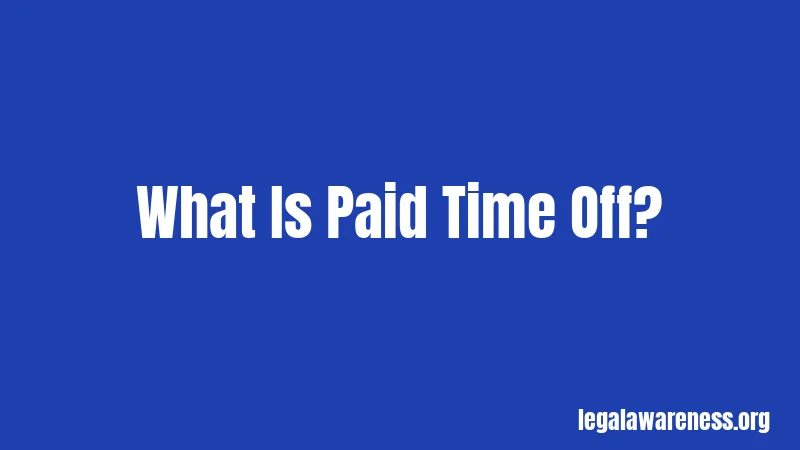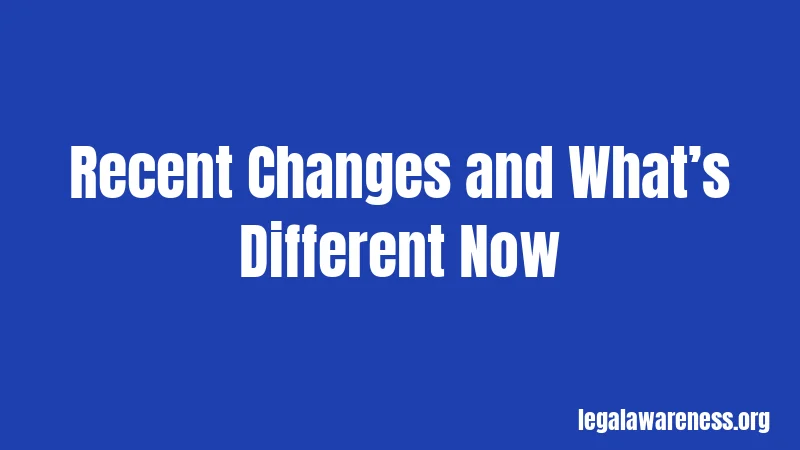PTO Laws in Florida (2026): Everything You Actually Need to Know
Here’s something that might surprise you: Florida doesn’t actually require employers to give you paid time off. Seriously. If you live or work in Florida, this is one of those laws that catches people completely off guard.
Now, that doesn’t mean employers can do whatever they want. There are rules. They’re just different from what most people expect. Let’s break down exactly what the law says about vacation time, sick leave, and personal days in Florida.
What Is Paid Time Off?

Paid time off (or PTO) is basically time you’re allowed to take away from work while still getting paid. It includes vacation days, sick leave, personal days, and sometimes holidays. Think of it as your paycheck without the work part.
Right? Pretty straightforward. But here’s where Florida gets interesting: the state doesn’t mandate that employers provide this at all. Your employer’s legal obligation to give you PTO depends entirely on what’s written in your employee handbook, contract, or company policy.
Florida’s Surprising Approach to PTO
Let’s be honest. This part confuses a lot of people. You’re not alone.
In most U.S. states, employers have to offer at least some vacation or sick leave. Florida isn’t one of them. The state takes a totally different approach: if your employer promises you PTO in your contract or handbook, they have to honor that promise. If they don’t promise anything, they don’t legally owe you anything.
Stay with me here. This is actually important.
The legal principle is simple: whatever your employer tells you you’re getting, you’re legally entitled to get. This is called “accrued compensation.” Once you’ve earned PTO according to your company’s policy, that time becomes a part of your wages. You can’t just lose it.
What You’re Actually Entitled To

Wondering if this applies to you? Here’s the key question: does your employer have a PTO policy?
If yes: Your employer must honor whatever policy they’ve written. If they say you get two weeks of vacation, you’re getting two weeks. If they say you get unlimited PTO, you’re getting unlimited PTO. They can’t take it back or ignore it.
If no: Florida technically doesn’t require them to give you anything. But here’s what matters: if you’ve already earned time off through your company’s practice or policy, even an informal one, they can’t just take it away when you leave.
This one’s probably the most important rule to understand. Basically, it’s about what employers actually promise versus what they’re legally required to offer.
How PTO Accrual Works
Most Florida employers use one of two systems. Either you accrue PTO gradually throughout the year (like earning an hour for every 40 hours worked), or you get a lump sum at the beginning of the year.
The good news? Florida courts have consistently ruled that once you accrue PTO, it belongs to you. Even if your company policy says you “use it or lose it,” Florida judges don’t always allow that. You might actually be entitled to be paid out for unused time.
Confused about the difference? Let me break it down. Accrual means you earn time as you go. A lump sum means you get it all at once, usually January 1st. Both are legal in Florida, as long as your employer’s policy is clear about which system they’re using.
Recent Changes and What’s Different Now

Here’s where it gets interesting. Florida hasn’t passed major new PTO laws recently, but employers are getting stricter enforcement from the state on one thing: use-it-or-lose-it policies are under scrutiny.
If your company says you lose unused vacation days at the end of the year, you might actually have a legal claim. Some employers in Florida have been challenged successfully on this exact issue. The courts basically said: if you earned it, you deserve to get paid for it or carry it over.
Hold on, this part matters. Some employers have fought back by being super clear in their policies. They say something like: “Employees accrue vacation time. This time is paid compensation. If not used by December 31st, unused balance must be paid out.” That kind of clarity protects the employer and protects you because everyone knows the rules.
What About Sick Leave?
Florida doesn’t require sick leave either. But wait, there’s more to know.
In 2014, a big Florida court case decided something important. A judge ruled that paid vacation time that employees earned can’t just be taken away. And Florida’s courts have extended similar thinking to sick leave when employers offer it.
So here’s the practical takeaway: if your employer provides sick leave, they’re bound by their own policy. You can’t be fired for taking allowed sick days. You can’t lose that benefit just because you’re leaving the company.
Exempt Employees and Salaried Workers
Are you salaried? Here’s what you need to know.
Salaried employees in Florida have additional protections under state law. If your company has a PTO policy and you’re salaried, that policy becomes part of your earned wages. Period. Your employer can’t change it mid-year without agreement, and they can’t refuse to pay you for accrued time when you leave.
This actually protects you more than hourly workers in some cases. Your paycheck already includes the assumption that you’re getting that time off. If your company tries to deny it, they’re basically refusing to pay you for work you’ve already done.
What Happens When You Leave Your Job
Okay, this one’s really practical. You’re quitting or getting laid off. What happens to your PTO?
Florida law requires employers to pay out accrued, unused vacation time when your employment ends. This is huge. You earned it. You’re entitled to cash for it, or at minimum, it has to be honored before your last day if you ask for it.
But hold on. There’s a catch with some employers. If you quit without notice or violate your employment agreement, your company might claim they don’t owe you payout. This gets tricky, and honestly, it depends on your specific situation. You might need a lawyer to sort it out.
Not sure what counts as “earned”? Generally, if you accrued it according to your company’s written policy, it’s earned. If your boss said you could have it, it’s probably earned. If it’s in your handbook, it’s definitely earned.
Company Policy Matters Most
Here’s the honest truth: your company’s employee handbook is basically your legal guide for PTO in Florida.
Whatever that handbook says, your employer has to follow it. If it says you get five days of vacation, they’re giving you five days. If it says vacation rolls over up to 40 hours, you can roll over up to 40 hours. Courts in Florida will enforce what the handbook promises, even if it’s better than what state law requires.
This is actually good news. It means you have legal protections based on what your employer promised. Just make sure you actually read your handbook.
Penalties for Employers Who Violate PTO Laws
What happens if your employer refuses to pay out your accrued PTO when you leave?
They could be on the hook for damages. Florida law allows you to recover the wages you’re owed, plus interest, plus in some cases attorney’s fees. This is serious enough that most employers take it seriously.
You could also file a complaint with the Florida Department of Economic Opportunity. This agency handles wage and hour issues. They might investigate and force your employer to pay up.
The thing is, violations of PTO rights can become expensive fast. Most employers know this and follow the rules. But if yours doesn’t, you have legal options.
How to Protect Yourself
Okay, pause. Read this carefully. Here’s what you should actually do about your PTO.
First, get a copy of your employee handbook. Read the section on vacation time and paid leave. That’s your legal baseline. If something in there is unclear, ask your HR department for clarification in writing.
Second, keep track of your PTO balance. If your company doesn’t give you a clear record of how many days you’ve earned and used, ask for one. Seriously. This protects you if there’s ever a dispute.
Third, if your employer refuses to pay out accrued PTO when you leave, don’t just accept it. Send them a written request. If they ignore it, you might have a legal claim.
Most people don’t realize they have these rights. But you do. You’ve earned it.
What About Unlimited PTO?
More companies are offering “unlimited PTO” policies now. So what’s the legal situation in Florida?
Here’s the catch with unlimited PTO: it’s legal, but it has to be genuine. Your employer can’t say “unlimited PTO” and then deny your requests or create a culture where nobody actually takes time off.
If you take reasonable time off and your company punishes you for it, that could violate Florida law. You’re still entitled to actually use the time you’re supposedly offered. If your boss implicitly (or explicitly) forbids you from taking days off, you might have a claim.
Basically, unlimited doesn’t mean untracked. Your company still has to let you use the time. If they don’t, it’s no different from not offering PTO at all legally speaking.
Federal Laws That Apply in Florida
Here’s something important. Even though Florida doesn’t require PTO, federal laws do protect certain time off.
The Family and Medical Leave Act (FMLA) requires employers with 50+ employees to provide up to 12 weeks of unpaid, job-protected leave for serious health conditions, family care, or certain military situations. Florida employees are covered by this federal law.
The Americans with Disabilities Act (ADA) requires reasonable accommodations, which can include flexible scheduling or time off for medical appointments.
These federal laws don’t require paid time off, but they do guarantee you can take time without losing your job.
Common Misconceptions About Florida PTO
Sound complicated? It’s actually not. But there are some myths floating around that can get you in trouble.
Myth 1: “Florida requires employers to give vacation days.” Wrong. Employers can refuse to offer any PTO at all.
Myth 2: “I forfeit my PTO if I don’t use it by December 31st.” Not necessarily. Florida courts often side with employees on “use it or lose it” policies.
Myth 3: “My employer can take away my accrued PTO.” Nope. Once you’ve earned it, it’s yours. They can’t just cancel it.
Myth 4: “Salaried employees don’t get PTO.” False. Salaried workers often have stronger protections for accrued time.
Frequently Asked Questions
Does Florida law require employers to provide paid time off? No, Florida doesn’t mandate PTO. However, employers must honor whatever PTO policy they’ve promised in writing or through consistent practice. Once you’ve earned PTO according to company policy, it legally belongs to you.
Do I get paid for unused vacation when I quit? Generally yes, if you’ve accrued it under your company’s policy. Florida law requires employers to pay out earned, unused vacation time when employment ends. Check your employee handbook for your company’s specific policy.
What’s the difference between sick leave and vacation in Florida? Florida doesn’t distinguish between them legally. Whichever type of leave your employer offers becomes part of your compensation once you’ve earned it. Both are protected the same way under Florida law.
Can my employer force me to use all my PTO before I leave? Employers can encourage it, but they typically can’t force you. However, they can require you to use accrued time rather than paying it out, depending on how their policy is written. Again, check your handbook.
What if my employer won’t pay out my PTO when I leave? You can file a wage claim with the Florida Department of Economic Opportunity or take legal action to recover the wages owed. Many employment lawyers handle these cases and can seek damages plus attorney’s fees.
Final Thoughts
So here’s what you actually need to remember about PTO in Florida: your company’s policy is everything. The state doesn’t mandate time off, but whatever your employer promises, they have to deliver.
Read your handbook. Track your time. If your company won’t pay out accrued PTO or acts like your earned time doesn’t exist, you have legal options. Don’t just accept it quietly. You’ve earned that time off, and Florida law has your back when it comes to protecting what you’ve already earned.
Now you know the basics. Stay informed, protect your rights, and don’t hesitate to ask HR for clarification when something seems off.
